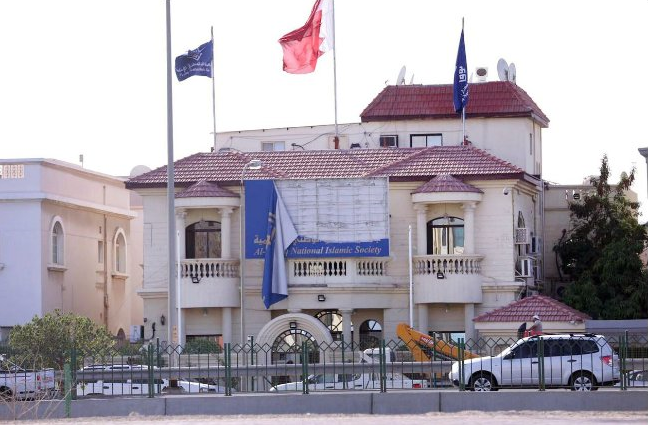Yesterday, on 19 February 2018, Bahrain’s Court of Cassation ruled to uphold the arbitrary dissolution of Al-Wefaq National Islamic Society – the country’s largest political opposition group which was originally closed in July 2016. The same day, 19 February, the government announced that the High Criminal Court again adjourned the trial of Sheikh Ali Salman, Sheikh Hassan Ali Juma Sultan, and Ali Mehdi Ali Al Aswad – all leaders of the now-dissolved Al-Wefaq – over accusations of “exchanging intelligence information with Qatar…[to] undermine [Bahrain’s] political and economic status as well as its national interest to overthrow the political system.” According to the authorities, the trial has been postponed to 1 March 2018 so that the prosecution can present further recorded telephone conversations, and so that a member of the court can “hear the statement of a witness who is under protection measures.” Notably, the government’s escalated targeting of the opposition coincides with the seventh anniversary of the 2011 pro-democracy uprising.
Sheikh Salman is the only defendant presently detained, serving a separate prison term based solely on political speeches he gave in his capacity as the secretary-general of Al-Wefaq. The other two defendants – Sheikh Sultan, a former elected member of the Council of Representatives, and Al Aswad – are also members of Al Wefaq, but they are not currently in government custody. The government arbitrarily stripped Sheikh Sultan of his citizenship in 2015, and he is no longer in the country.
Although the allegations date back to 2011, the authorities only brought charges after Bahrain joined Saudi Arabia, the United Arab Emirates, and Egypt in a diplomatic row with Qatar beginning in June 2017. The charges themselves appear to largely pertain to well-documented communications between Al-Wefaq leaders and the Qatari government, which was openly attempting to mediate Bahrain’s political crisis as reported by the Bahrain Independent Commission of Inquiry (BICI) as early as November 2011. Opposition sources allege that Bahraini authorities have doctored and otherwise manipulated the communications to create false indications of wrongdoing, and that Ministry of Interior forces have seized relevant documents that Sheikh Salman intended to send from prison to his lawyers.
The continued judicial harassment of Sheikh Salman and Al-Wefaq is only part of the government’s broader attack on opposition political groups ahead of the 2018 vote for Bahrain’s elected lower house of parliament. In 2017, the government forcibly dissolved Wa’ad, the largest secular leftist society, and it has taken similar action against a smaller leftist group, Al-Wahdawi. The latter’s former secretary-general, Fadhel Abbas, is currently imprisoned on charges stemming from the group’s public criticism of the Saudi-led military operation in Yemen, and the society’s current leader, Hasan al-Marzooq, is reportedly summoned for interrogation by the Ministry of Interior’s Cybercrime Department at the Criminal Investigations Directorate (CID) tomorrow, 21 February 2018. The CID is notorious for torture and other abuses, while the Cybercrime Department is specifically implicated in widespread violations of the right to free expression.





